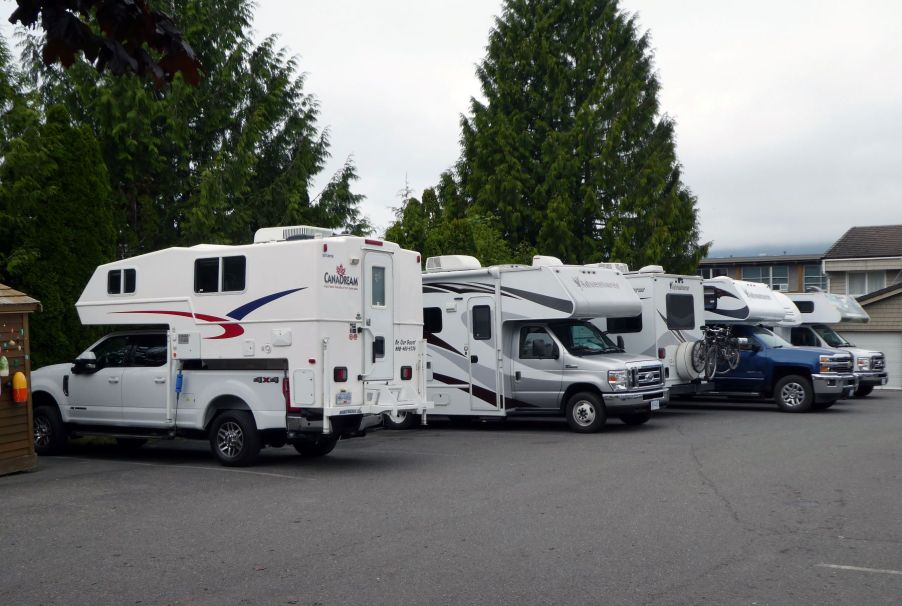
You Can Ride in a Truck Camper in All but 5 States
It is no wonder that people want to get a truck camper. You can park in just about any parking space, travel lightly, and get to more rural areas and drive on more windy roads that larger campers can’t handle. Some people love the freedom given by truck campers that they even ride in the camper while their partner drives. This issue of car safety is definitely controversial. It is controversial enough that five states have made it illegal to ride in a truck camper.
Check where you can ride in a truck camper

It is fun and a rush of freedom to head out on vacation with your family. If your truck can’t hold everyone, it is a sensible question to wonder if you can overflow into the camper. Is it legal to ride back there? According to RV Blogger, the short answer is yes, in most states. Most states allow people to ride in the truck camper while it’s in motion.
However, five states explicitly outlaw passengers in the truck camper when the vehicle is in motion.
- Arkansas
- Maine
- Mississippi
- New Hampshire
- Pennsylvania
Four states don’t explicitly forbid riding in a truck camper, but they do put restrictions on it.
- California: Passengers must be able to communicate with the driver, the exit must be accessible from the inside and outside, safety glass in the windows, and safety belts installed.
- Georgia: Passengers must have “free access” to the driving compartment.
- Hawaii: Passengers must be at least 13 years old.
- Kansas: Passengers must be 14 years old.
Riding in one may not be a good idea
While it may be legal in most states to ride in a truck camper, it may not be a good idea. According to Truck Camper Adventure, riding in a truck camper is not a good idea, primarily because these campers are typically not equipped with seatbelts. Seatbelts are required in RV motorhomes by federal law, but the same law is not in place for truck campers, fifth wheels, or travel trailers.
There is also the issue of communication with the driver. Most truck campers do not allow the driver to communicate with any passengers in the camper, nor can the driver keep an eye on them. Additionally, truck campers do not go under the same crash testing that cars and trucks are required to pass. Therefore, these campers are not constructed for high-speed collisions and rollover accidents.
The drawbacks and benefits of truck campers
Owning a truck camper may be enticing, but you should consider the drawbacks and benefits of owning one. One drawback is that you may not have the right size vehicle. Your vehicle will need the correct payload for your camper. If you have your eyes on a bigger and nicer option, you will need a bigger truck.
Truck campers are also cumbersome and hard to deal with alone. Unless you invest in a nicer model with a special jack system, you will need a partner to help you get it installed, loaded, and unloaded. A third significant drawback is that truck campers may make using the bathroom impossible. Most campers do not have a full bathroom, nor do they have a sufficient tank size. If you can use the toilet in the camper, you will have to dump the waste often.
However, don’t let the drawbacks completely ruin your truck camper dream. There are benefits too. For one, you can park your truck and camper in just about any parking spot. As long as you consider the width of the camper, you can park where you want. Everything you need is also right there in the bed of your truck. You can travel lightly and have easy access to everything you need. Finally, you can go to areas where larger RVs can’t go, like more rural areas and winding mountain roads. This opens up many possibilities.


